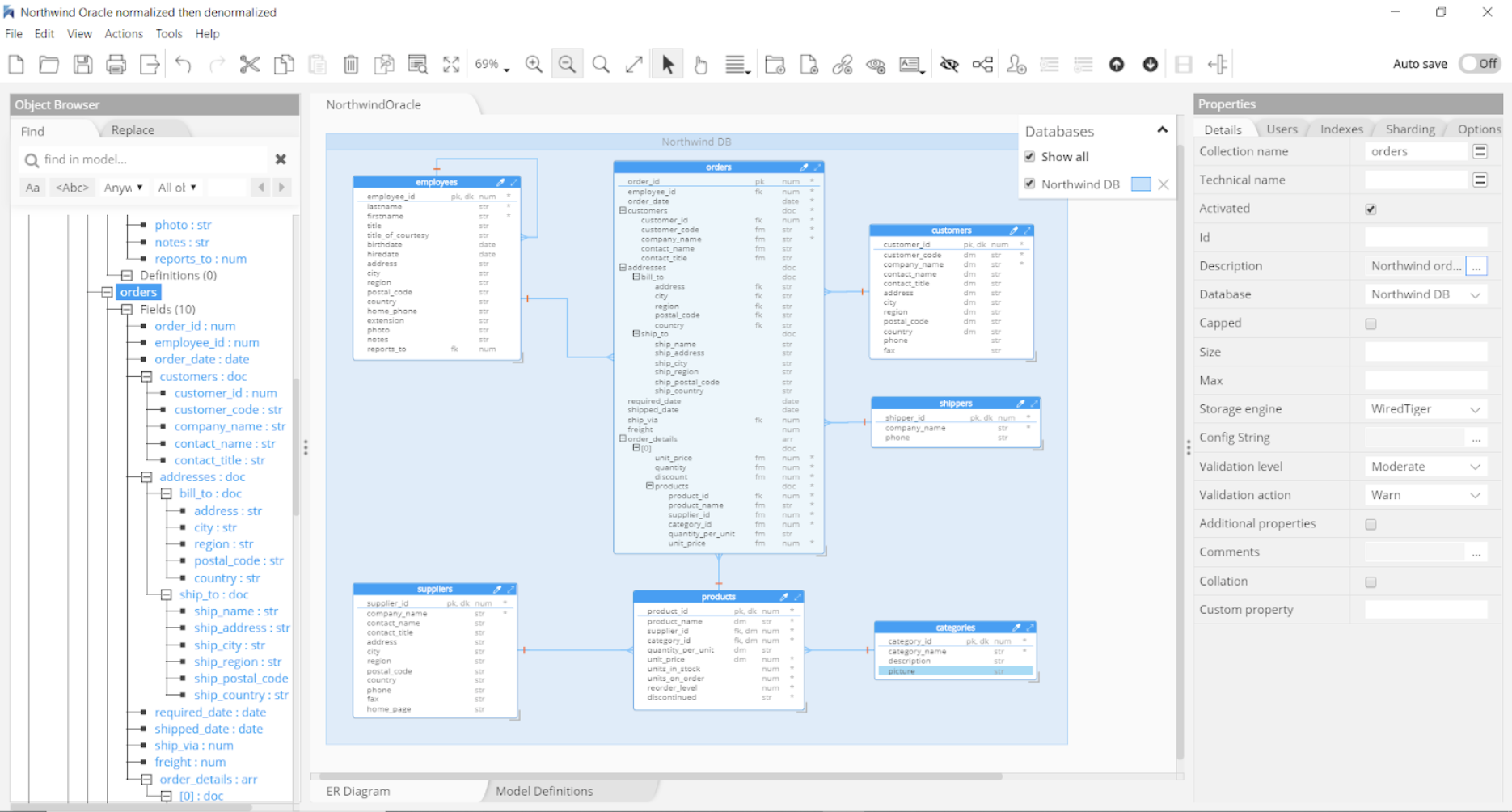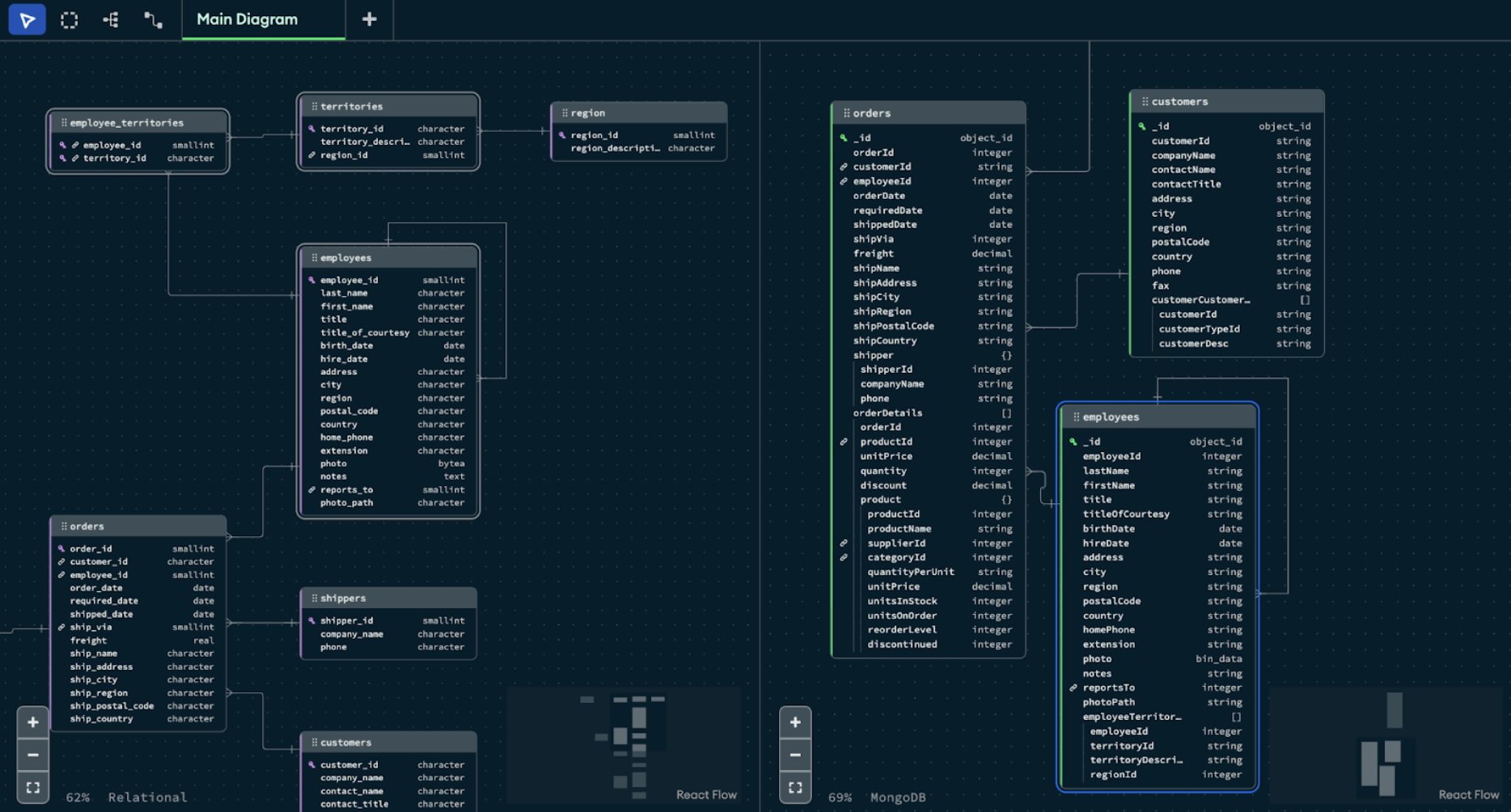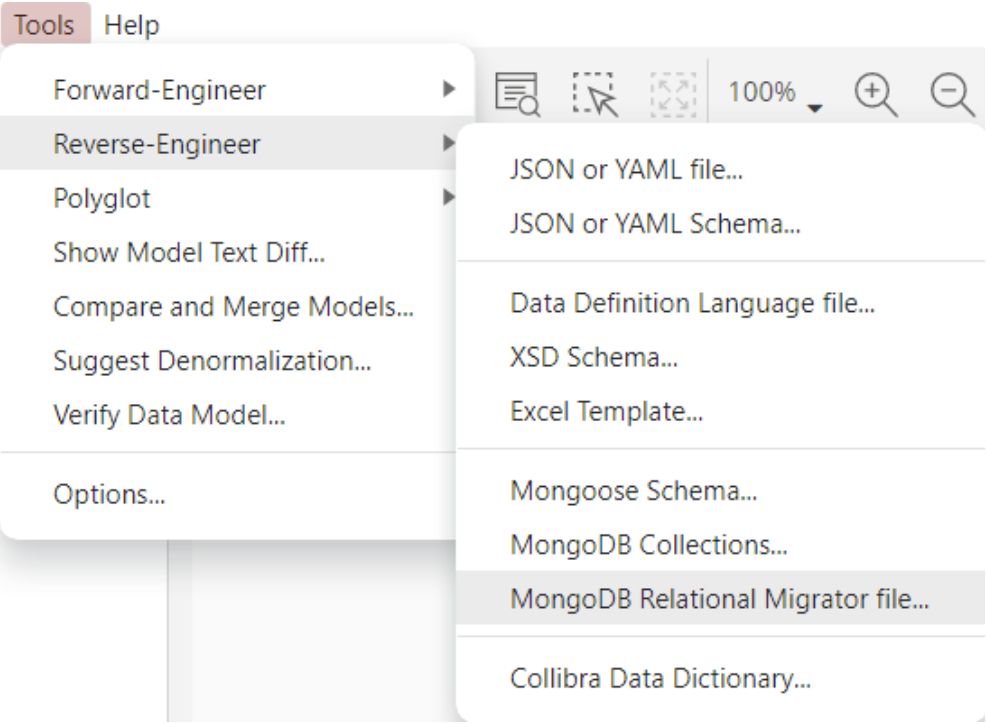Application modernization has always been a constant. For many developers and database administrators, the realization that their legacy relational databases that have served their apps well to this point are no longer as easy and fast to work with has become glaringly apparent as they strive to incorporate emerging use cases like generative AI, search, and edge devices into their customer experience at an increasing rate.
While many are turning to MongoDB Atlas for the flexible document model and wide range of integrated data services, migrations are often seen as daunting projects. MongoDB Relational Migrator has simplified several of the key tasks required to successfully migrate from today's popular relational databases to MongoDB. With Relational Migrator, teams can design their target MongoDB schema using their existing relational one as a blueprint, migrate their data to MongoDB while transforming it to their newly designed schema, and get a head start on app code modernization through code template generation and query conversion.
But as organizations scale their MongoDB footprint through migrations and new app launches, a new challenge emerges: managing and evolving data models with more teams and stakeholders. Sooner or later, modernization becomes as much about change management as it does technology — keeping teams aligned is critical for keeping everyone moving forward.
This is where Hackolade comes in. Hackolade Studio is a visual data modeling and schema design application that enables developers to design and document their MongoDB data models, and more importantly, use those entity-relationship diagrams (ERDs) to collaborate with their counterparts in other areas of the business, like database administration, architecture, and product management.

No database is an island, and the teams working with MongoDB cannot afford to work in isolation. With Hackolade Studio, database teams can use these ERDs to translate their point-of-view to others, making hand-offs and handshakes with other teams like operations more seamless, driving developer productivity, and accelerating new feature builds.
Jump from Relational Migrator to Hackoldate Studio with ease
Hackolade Studio is now making it even easier to transition to their application after using MongoDB Relational Migrator to complete their migrations. Teams can now use Hackolade Studio’s reverse-engineering feature to import their Relational migrator project (.relmig) files, bringing their MongoDB schema directly over into Hackolade Studio.
With this integration, teams can start with Relational Migrator to build their initial schema and execute their data migration, then transition to Hackolade Studio to document, manage, and evolve their schema going forward - giving them a greater degree of control, visibility, and collaboration needed to support modernization initiatives that include many migrations across several applications, teams, and legacy relational environments.

Getting started is incredibly easy. First, you’ll need your Relational Migrator project file, which can be exported from Relational Migrator to your local device. Then in Hackolade Studio, use the reverse-engineering workflow to import your .relmig file into a new or existing data model. For a detailed walkthrough, dive into Hackolade’s documentation for this integration.

As MongoDB adoption grows within your organization, more apps and more teams will need to interact with your MongoDB data models. With Relational Migrator and Hackolade together, you will have the tools at your disposal to not only kickstart migration projects but also manage MongoDB data models at scale, giving your teams the insights and visibility needed to drive performance and guide app modernization initiatives.
Learn more about how Hackolade can maximize developer productivity and support your modernization to MongoDB initiatives.
Download MongoDB Relational Migrator for free to get started with migrating your first databases.